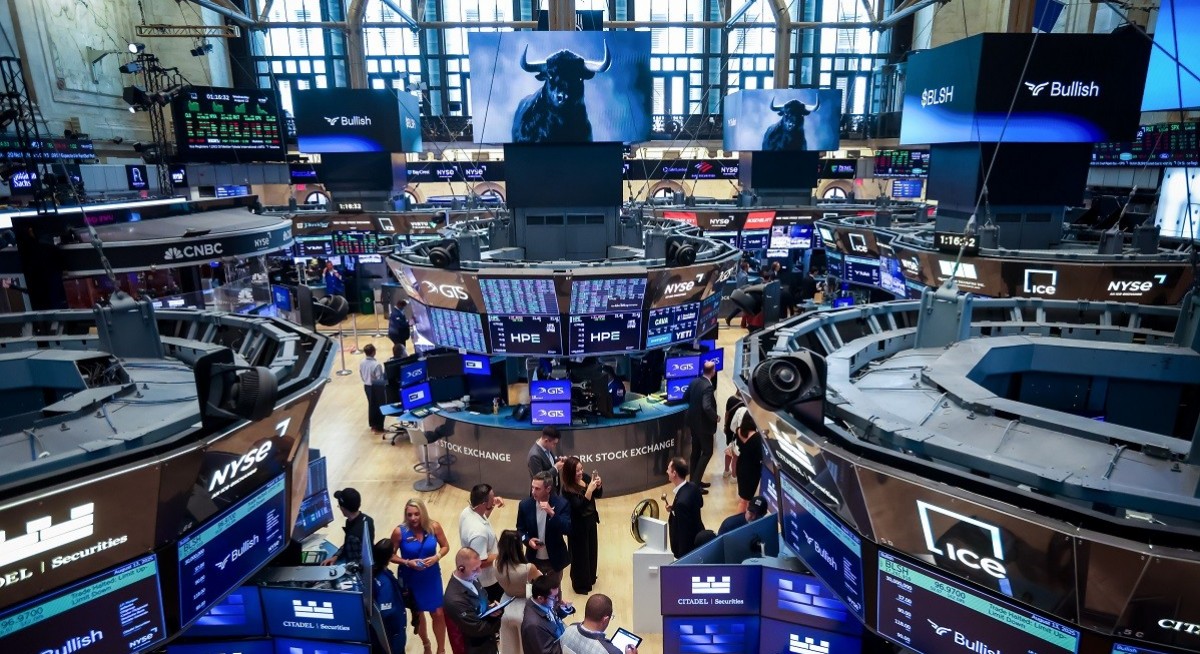Even that wasn’t high enough, as the stock popped 143% from the IPO price in its opening trade, delivering a paper windfall to a group that’s traditionally been shut out of market debuts.
The Bullish example showed Wall Street and the private companies looking to enter public markets that retail traders, who make up more than 20% of all US equity trading and weigh heavily on newfangled markets like crypto, can bring enough demand to change the dynamics of an IPO pricing. The surge in retail participation at online brokerages also means bankers don’t have to exclusively rely on pre-existing relationships with clients — they can offer IPO shares to virtually anyone, broadening the demand pool.
This Year's Hottest IPOs Built Up From a Low Base
See also: Syngenta hiring banks for potential Hong Kong IPO, Bloomberg reports
“It’s a new paradigm,” said Becky Steinthal, head of technology, media and telecommunications equity capital markets at Jefferies Financial Group Inc., who worked on the Bullish IPO. “Crypto, AI and other consumer buzzword sectors are certainly going to see the most extreme retail demand, but issuers have the option of retail being a bigger piece of the IPO process than they’ve been historically,” she said “This is all driven by technology.”
The targeting of individual traders is on display in deals slated to price in the coming days. The Winklevoss Twins’ Gemini Space Station Inc.’s IPO includes an explicit 10% allocation to retail investors at online brokerage platforms including Robinhood, SoFi, Moomoo Financial and Webull.
Others are following suit. Blockchain-finance firm Figure Technology Solutions Inc requested its banks offer shares to retail through certain online brokerage platforms. Public transportation software firm Via Transportation Inc. has tapped SoFi, Robinhood and Morgan Stanley’s eTrade platforms to sell shares to individual investors ahead of the start of trading.
See also: GIC-backed Thai start-up weighs IPO in Hong Kong or New York
Growing Retail Demand
Going by data from Robinhood, the tactic is likely to pay off for IPO hopefuls. Demand for IPOs on its platform was five times greater this year than last year, Steve Quirk, the firm’s chief brokerage officer said in an interview.
“We are oversubscribed in every single one that comes,” Quirk said. “The demand is always stronger than the supply. Issuers love that and want people who are fans of their companies to be recipients of an allocation.”
Bullish sold one-fifth of shares to individuals, or about US$220 million worth, roughly four-times what industry veterans say is typical, according to its CEO Tom Farley. Moomoo clients alone put in orders for more than US$225 million, the brokerage firm’s US chief executive Neil McDonald said. The broker promoted access to the IPO across its platforms, something that caught the eye of thousands of retail traders on competitors like Robinhood and SoFi.
“The retail proportion was split between traditional bank channels and the relatively newer class of electronic retail brokers such as SoFi and Robinhood,” Bullish’s Farley said in an interview on the day of the company’s debut.
Representatives for Bullish and the underwriters on its IPO including JPMorgan Chase & Co, Jefferies and Citigroup Inc declined to comment on retail’s role in the offering.
For more stories about where money flows, click here for Capital Section
Bullish Shares Remain Higher After Big Debut
Reliable Partners
Wall Street has long viewed retail buyers as price insensitive, essentially deeming them reliable buyers of IPOs in hopes of getting in on any initial pop. As a result, mom and pop traders often bought high and watched as IPO participants offloaded shares at a profit, leaving them with steep losses.
Now private companies see retail as less of a mark and more as a reliable partner worthy of reward during the IPO marketing. The desire to sell to them at the IPO can provide a sense of loyalty, while other deals may tap individual investors given the steady trend of retail trading in the market.
The group’s buy-and-hold tendencies can help bolster share prices, but also may impact trading liquidity in a stock’s debut. Platforms including Robinhood also have policies against individual investors flipping shares within 30 days of an IPO, potentially drawing penalties and limiting access to other deals.
Still, the prospect of a stock market correction or a string of IPO duds could drive individual investors to flee the new issue market.
“There’s an argument that retail is your friend and your enemy in the sense that they often show up big when the IPO market is hot, and they won’t when it’s not,” said Jefferies’ Steinthal. “The trend of retail participation in IPOs will depend on market conditions.”




